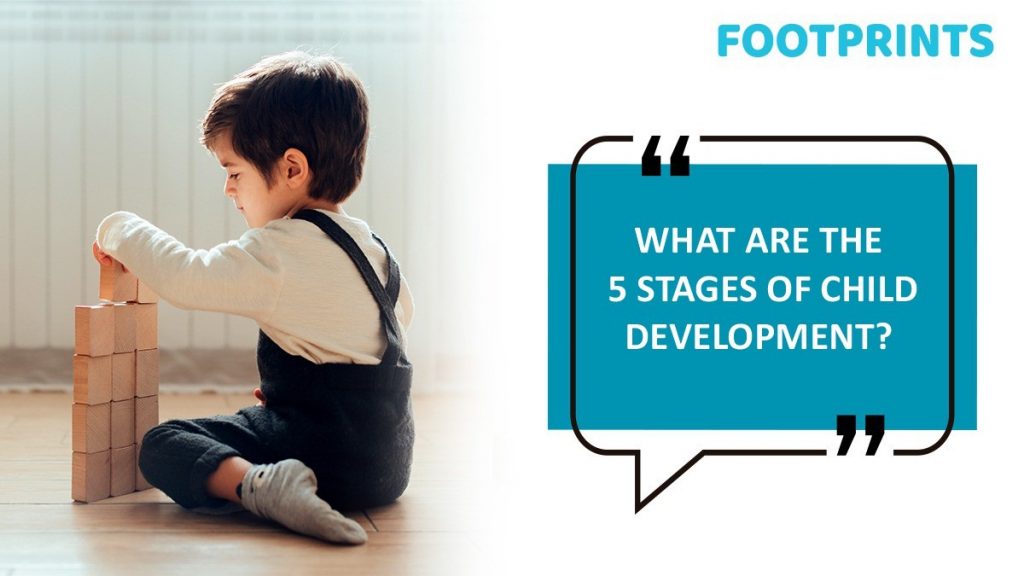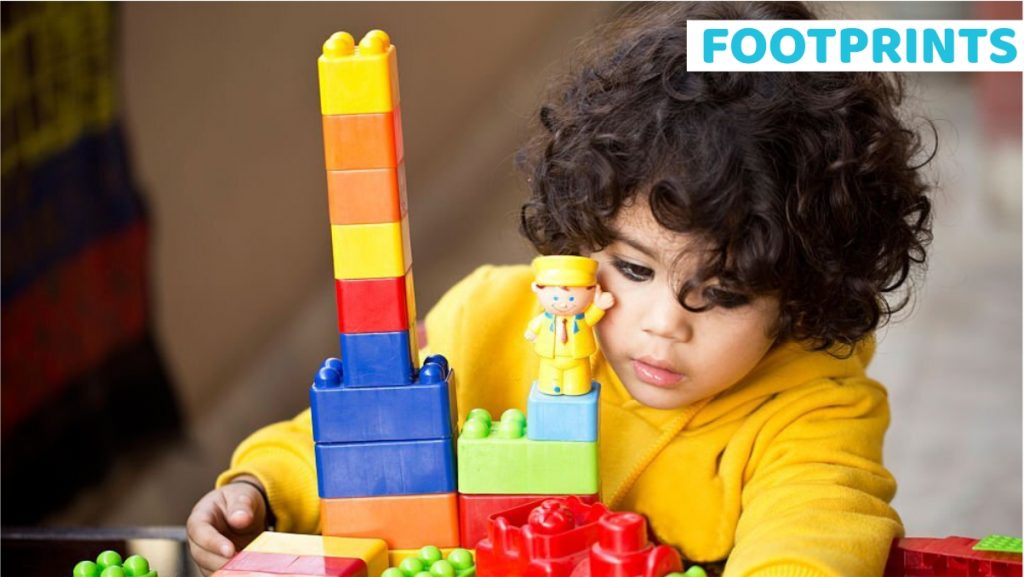
Children undergo rapid transformations, not only in their physical attributes but also in terms of cognitive development as they progress toward adulthood. Throughout this journey, they traverse numerous developmental milestones vital to their overall growth. The five overarching stages of child development are presented below, as recognized by experts, along with the corresponding developmental milestones.
5 Stages of Child Development
The five broad stages of child development include the following:
- Newborn (From birth to two months)
- Infant (3 to 12 months)
- Toddler (1 to 3 years)
- Preschooler (3 to 5 years)
- School-going age (6 to 16 years)
Let us look at each of these stages in some detail.
Newborn
In the initial two months of life, as the infant acclimates to its external environment, you observe responses to external stimuli, such as sound or light. When you move a sound-emitting toy from side to side, you’ll notice the newborn turning its head and tracking the sound. Despite not being verbal, the child adeptly communicates their needs through crying, revealing a nuanced expression.
Infant
During this phase, children rapidly acquire new skills and abilities. Key milestones to observe include the onset of babbling and enhanced control over head movements. By 6-9 months, they typically begin sitting unassisted, responding to their names, and more. The period between 9-12 months is delightful and demanding as they start to crawl, making no area off-limits. They may even stand without support at this stage, necessitating increased vigilance.
It’s important to remember that each child’s development is unique, so avoid drawing comparisons. Don’t be alarmed if a child does not exhibit these activities at the expected stages. Instead, consult a pediatrician to assess for any developmental delays. Vision assessments are also crucial. For example, a professional evaluation is advisable if a 3-month-old does not track moving objects or frequently crosses their eyes. Similarly, consider seeking an evaluation if a 6-month-old fails to follow things near and far.
Toddler
Once again, this marks a phase of rapid transformations. Between the ages of 1-3, children master the art of walking, progress to running, and exhibit climbing abilities. Concurrently, their vocabulary expands as they initiate conversations. They can reliably follow simple instructions.
Should there be any indications of developmental delays, such as challenges in walking or speech delays, it is imperative to seek medical assistance. During this stage, children are also assessed for potential signs of autism if concerns arise. Beyond monitoring physical development and speech milestones, it is equally crucial to remain attentive to any cues of social or emotional delays, as well as potential cognitive developmental delays:
- By the time the child is one year old, if he does not point toward objects or make gestures such as waving.
- At two years of age, if the child does not follow simple instructions or does not imitate actions or words.
Preschooler
This marks the phase when children begin to embrace independence, taking their initial steps into the realm of preschool. During this period, both their gross and fine motor skills undergo development. They acquire the ability to dress themselves, exhibit proficiency in activities like throwing and catching a ball, and engage in fine motor tasks such as coloring within outlined shapes. Their vocabulary expands significantly, allowing them to articulate complete sentences. This newfound independence often sparks heightened curiosity as they explore a vast world of opportunities.
As parents, there are several things that you can do to help your preschooler at this important stage. Some of them include:
- Read to your child. This will offer them exposure to new worlds, improve their vocabulary, and make them readers for life.
- Give them simple chores.
- Encourage them to play with other children and learn the importance of sharing.
- Teach them that actions have consequences in an age-appropriate manner.
- Improve their vocabulary by speaking to them in complete sentences.
- Offer them choices and help them learn the art of decision-making.
- Ensure that they develop an emotional vocabulary.
At Footprints, a play school esteemed by parents nationwide, we prioritize the holistic development of each child, focusing mainly on experiential learning. We aim to cultivate inquisitive learners who carry that spirit throughout their lives!

School Going Age
Children between the ages of 6 and 17 complete their schooling, marking a significant phase in their academic journey. This broad age range encompasses numerous transformations. In this interval, children develop their perspectives, mature into independence, experience a spectrum of emotions, and forge friendships. They must encounter diverse age-appropriate experiences and acquire essential life skills, enabling them to mature into competent adults who can navigate life’s challenges with resilience.
If you observe any signs of difficulty in maintaining focus, being easily distracted, or encountering challenges in reading or writing, it is advisable to seek an evaluation for the child.
To Sum up
As parents and caregivers, cherishing every stage of a child’s growth into responsible adulthood is paramount. While we’ve highlighted fundamental developmental milestones, refrain from dwelling in apprehension if these aren’t met precisely. Alleviate concerns by seeking guidance from medical professionals upon observing any signs. Additionally, take comfort in the knowledge that a diverse range of therapeutic interventions is now accessible, encompassing, but not confined to:
● Physical therapy for physical developmental delays
● Occupational therapy for motor skills and independent living skills
● Speech and language therapy
● Behavioral therapy for behavioral issues
Here’s to enjoying their childhood while equipping them with the right skills so they grow up to become responsible adults!



